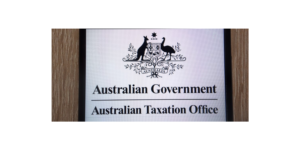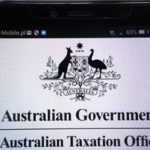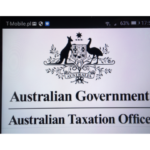What Happens if I Am Late to Lodge My Income Tax Return?

It’s probably fair to say the Australian Taxation Office isn’t seen as the fairest or most beloved organisation out there – taking a huge chunk of the hard-earned funds of residents every year and often meritlessly allocating much of it to questionable schemes and the privileged; including millions to already well paid politicians for their living and travel expenses.
Over and above this, the Office applies interest rates which are vastly above market rates when it comes to late payments, and even requires already struggling business to make ‘up front’ tax instalment payments well before their tax returns are due.
The penalty that doubles every 28 days
But there’s another way the office extorts everyday Australians, many of whom are reeling from two and a half years of Covid restrictions and lockdowns – a fine that multiplies every 28 days if it is left unpaid.
The penalty is for the late lodgment of your income tax return.
Lodgements That Are Susceptible to ATO Penalties
There are many lodgements liable for FTL penalties, including:
Activity statements – Activity statements are subject to FTL penalties if you don’t lodge them on time. Individuals can find their business activity statement in MYOB Business, which tracks the GST and pre-fills your BAS.
FBT returns – Employers must lodge annual Fringe Benefits Tax (FBT) returns. Failure to lodge can lead to an ATO investigation into business activity and FTL penalties.
Annual GST returns – an individual might be eligible to report and pay an annual GST if the GST turnover is under the current threshold of $75,000 for businesses and $150,000 for non-profit organisations.
PAYG withholding annual reports – Businesses should report their PAYG withholding through their single-touch payroll (STP) software or a PAYG withholding payment summary annual report.
Taxable payment annual reports – Taxable payments annual reports (TPAR) must be lodged by 28 August for businesses that make regular payments to contractors.
Single-touch payroll reports – Single-touch payroll (STP) reports send payroll information, PAYG withholding, and superannuation information to the ATO.
How the ATO Calculates Penalties
The government’s calculation of an FTL penalty will depend on the size of the entity and the lodgement due date.
Small entities
For a small entity, the FTL penalty is calculated at the rate of one penalty unit for each period of 28 days that the statement is overdue.
Medium entities
The penalty unit is multiplied by 2 for a medium entity. A ‘medium entity‘ has an income of more than $1 million and less than $20 million.
Large entities
The penalty unit is multiplied by 5 for a large entity. A ‘large entity‘ has assessable income or current GST turnover of more than $20 million.
Significant entities
The base penalty amount is multiplied by 500 for a significant global entity.
What is the penalty for the late filing of a tax return?
Regardless of whether you’ve been affected by floods, illness or another situation that is out of your control, unless you arrange an extension of time you will be hit with fine of one Commonwealth penalty unit for filing your tax return late, which is currently equivalent to $222, and that penalty can double every 28 days up to a maximum of $1110; a figure that many can ill afford with rising interest rates and skyrocketing living costs.
Indeed, a fine of $222 can be as much as 10% to 25% of a person’s weekly income, or even more for those on social security benefits.
If you are what’s known as a ‘medium entity’ – which is one that a person that earns, or a business or company that turns over more than a million but less than $20 million – the fine is two penalty units, or $444, up to a maximum of five times that amount, or $2,220.
A fine of $444 is equivalent to between just 0.044% and 0.0022% of a medium entity’s income.
And for a ‘large entity’ – or one that earns more than $20 million – the fine is 5 penalty units, or $1,110, up to a maximum of $5,550.
This represents, at the very most, 0.0022% of a large entity’s income and, the more the entity makes, the less of a percentage the fine represents.
So, clearly, these fines impact the most severely on low-income earners and the least severely on big business.
Proving your innocence
If you receive a penalty for allegedly failing to lodge your tax return on time, the onus of proving this was not in fact the case will, for all intents and purposes, shift to you to show you did no such thing.
What’s more, it’s known as a ‘strict liability offence’ which means you don’t need to have negligently, recklessly or intentionally engaged in the conduct – just committing the act is enough.
Penalising everyday Australians
It’s yet another example of how the ATO penalises hardworking Australians, while big multinational corporations which make significant profits are able to pay little tax (legally) year upon year. It’s often been said that Australia has one of the most complicated tax regimes in the Western World.
Additionally, the previous Federal Government invested heavily in the ATO in recent years – providing it with significant resources and powers to stamp out the “black economy” which costs the economy billions every year.
As a result, all of us are under scrutiny.
So, what if I keep failing to lodge my tax return?
It’s important to be aware that a continuing failing to lodge a federal tax return can lead to charges of tax fraud, also known as tax evasion, which can be punishable by up to 10 years in prison.
‘Aggressive tactics, pressured staff, toxic workplace’
Currently, the case of ATO whistleblower Richard Boyle is before the Adelaide Magistrates Court in South Australia.
Mr Boyle has told the court that the workplace culture at the ATO during his tenure was toxic. He has also expressed his concern about the ATO’s extortion-like debt recovery tactics which, he told the court,he ‘feared would cause suicide in the community.’
Mr Boyle alleges that ATO pressured staff to be heavy-handed when collecting debts from taxpayers, including some who were ill, being abused, or who had been through fires or floods.
He has also told the court that after he raised concerns internally at the ATO, he was victimised and ostracised, which led to him suffering post-traumatic stress disorder and “catastrophic psychological injury”.
Disappointed with the internal complaints procedure Mr Boyle eventually went public with his story and is now facing 24 charges for taping private conversations without consent and for taking photos of taxpayer information, which he says he collected as evidence for a public interest disclosure.
Public Interest Disclosure Act
Mr Boyle is seeking protections under the Public Interest Disclosure Act (PID) to avoid being prosecuted for releasing protected information from the ATO.
The PID Act is intended to facilitate reporting and investigation of allegations of serious wrongdoing in the Commonwealth public sector. The Act:
Removes barriers that prevent people who work in the public sector from speaking up about serious problems. It also makes sure disclosures are properly investigated and provides protection for those that report allegations.
Problems, issues or conduct that may be considered to be worthy of public interest disclosure include:
- Activities or behaviour which contravenes a law,
- Activities or behaviour that is corrupt or abuses a public official’s position and may be determined as ‘misconduct’,
- Activities or behaviour that perverts the course of justice,
- results in a wastage of public funds or property,
- Activities or behaviour is an abuse of public trust,
- Activities or behaviour unreasonably endangers health and safety or endangers the environment, and
- Activities or behaviour that may amount to maladministration, including conduct that is unjust, oppressive or negligent.
‘Drop the charges’
Mr Boyle’s case is the first critical first test of the strength and effectiveness of national whistleblower protections under this Act. If he fails in his bid to avoid prosecution, he will have to battle the charges against him in a criminal court, and faces the prospect of decades in jail.
Many Australians believe that the case should simply be dropped, and the calls to Federal Attorney General Mark Dreyfus have been loud and clear.
The Attorney-General has powers under section 71 of the Judiciary Act to stop the prosecution, but has said previously he will not use them to intervene in the Boyle case – yet he has also said that the government is “committed to reforming the Public Interest Disclosure (PID) Act”.
Going to court over allegations of a tax offence?
If you have been accused of a tax offence and are going to court, call Sydney Criminal Lawyers anytime on (02) 9261 8881 for a free first conference to receive expert advice and formidable legal representation, however serious the allegations may seem.








